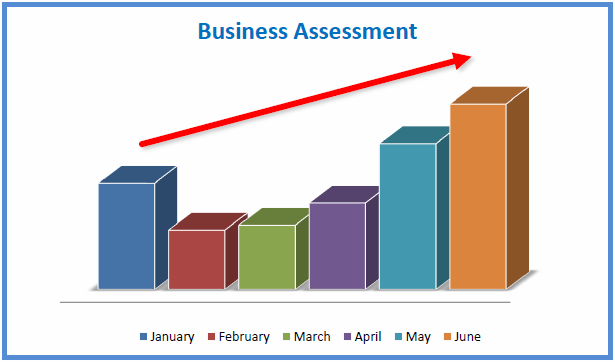
If you are the CEO or owner of a small-to-medium-size business, or if you manage a business from home as millions of American entrepreneurs do, a mid-year review of your business plan is as natural and necessary as mid-year performance assessments are of your employees and key managers. You bear principal responsibility for your company’s success; therefore, you need to know if you’re hitting your benchmarks for the success you seek.
Six months ago, as part of the 2012 year-end planning process, you committed to a set of goals for 2013. We’ll call that planning document the script. You and your team developed a plan of action, or a strategic plan, to achieve a defined set of goals. Moreover, each member of your team accepted the value of a positive mental attitude and to focus on the completion of key tasks. An uncertain business climate required a high degree of flexibility from the front office to accounting to tech support down to shipping.
During the November 2012 staff retreat, everyone gave high marks to the exercise on “Breaking My Comfort Zone – Getting Creative.” As the 2013 plan neared completion, everyone felt good about a final product. The script looked good and everyone shoved off to get it done.
Domestic politics hung like a wet blanket over the economy in 2012 and the calendar from January to the present was a blur. We are now approaching mid-course – – June/July – and it is time to revisit the script. It is also time for the tough questions.
Before you, as CEO or owner address the tough questions, remember that the answers, the feedback from others (staff and advisors) should inspire you. Critical feedback should not create apprehension or sow doubt.
Reset your attitude if warranted because what you do, and how you do it, as the responsible executive over the remaining seven months of 2013, hangs in the balance. Some managers and staff fear assessments, especially today, because, to them, performance reviews are a negative exercise. Layoffs throughout the economy are announced almost daily and a review can be interpreted as a prelude to more downsizing.
To begin, you, as CEO or owner, should close your door and ask the question: Are we where we projected to be in six months? If not, do you know why not? For example, did you get ahead of projections on expenses? Was the marketing plan effective? Whose sage advice did you set aside while preferring your own ideas? Does this represent a “Do-over-if-I-could” moment? If so, set aside the ego and quietly get with that person again. Remember – be positive! You cannot afford the luxury of denying reality.
It is natural as a CEO or owner to believe in your own ideas. If they don’t produce the desired result, redirect! Your business advisor (if you have one) and your team should appreciate your flexibility and willingness to learn.
Now, let’s revisit the script. Here is an item most small business owners frequently neglect: setting aside at least 30 – 45 minutes at the end of each day to reflect on that day’s activities and how they positioned your business for tomorrow. The question is, are you and your team balancing priorities or just responding to crises?
A second critical question: What changed in your business ecosystem the first five months of 2013 that you did not or could not have foreseen? If you did foresee change, were your contingency plans adequate? Also, remember to share good news with your team. Recognition for solid performance can often strengthen team loyalty and solidarity during those times when you are unable to meet expectations of pay raises, bonuses, or better health plans. Retaining a loyal and skilled workforce has to be a major priority in a weak economy.
Third: what course corrections will you make to re-align your script with the course you charted slightly more than six months ago?
If you are on course, continue as you are. However, if you are like many of your contemporaries in enterprises large and small, you, too, had to adjust to shifts in consumer demand and other market conditions.
Any success you project to achieve during the next seven months will be contingent upon a variety of ponderables and imponderables. You will not have time for denial. You will need to face change head-on, determine why your plan was inadequate and adjust it to reflect (in military parlance) changed conditions on the ground.

It is always true that one of your primary responsibilities is to manage expectations – and consequences – of change. A CEO or owner, and his/her line managers have responsibilities similar to those of a scriptwriter. At the end of the creative process, you write the script. In business today, the script is never a lock; it is a working document.
The proverbial “buck” stops with you, the CEO or owner. Therefore, consider grading yourself on how you manage the important elements of your business e.g., expenses and record keeping; revenues and how allocated; marketing, customer and employee retention; creditors, and personal development. Personal growth achieved under demanding circumstances bolsters confidence and inspires greater staff cohesion and loyalty. Moreover, it makes changing the script easier the next time.
In the end, you come to trust that making the required corrections to the script will ultimately bring about the desired results. It is always likely that corrections may create some discomfort with some among your employees, but that does not mean the corrections are ill advised. There are occasions when a little creative tension can be constructive.
Effective managers make critical, sometimes unpopular, decisions. Mid year reviews, especially in business, require the ability and a willingness to think and act affirmatively. Mental preparation is just part of the process by which choices are evaluated and optimized.
Ultimately, you, the CEO or owner, have to get it done because that is what is required.
